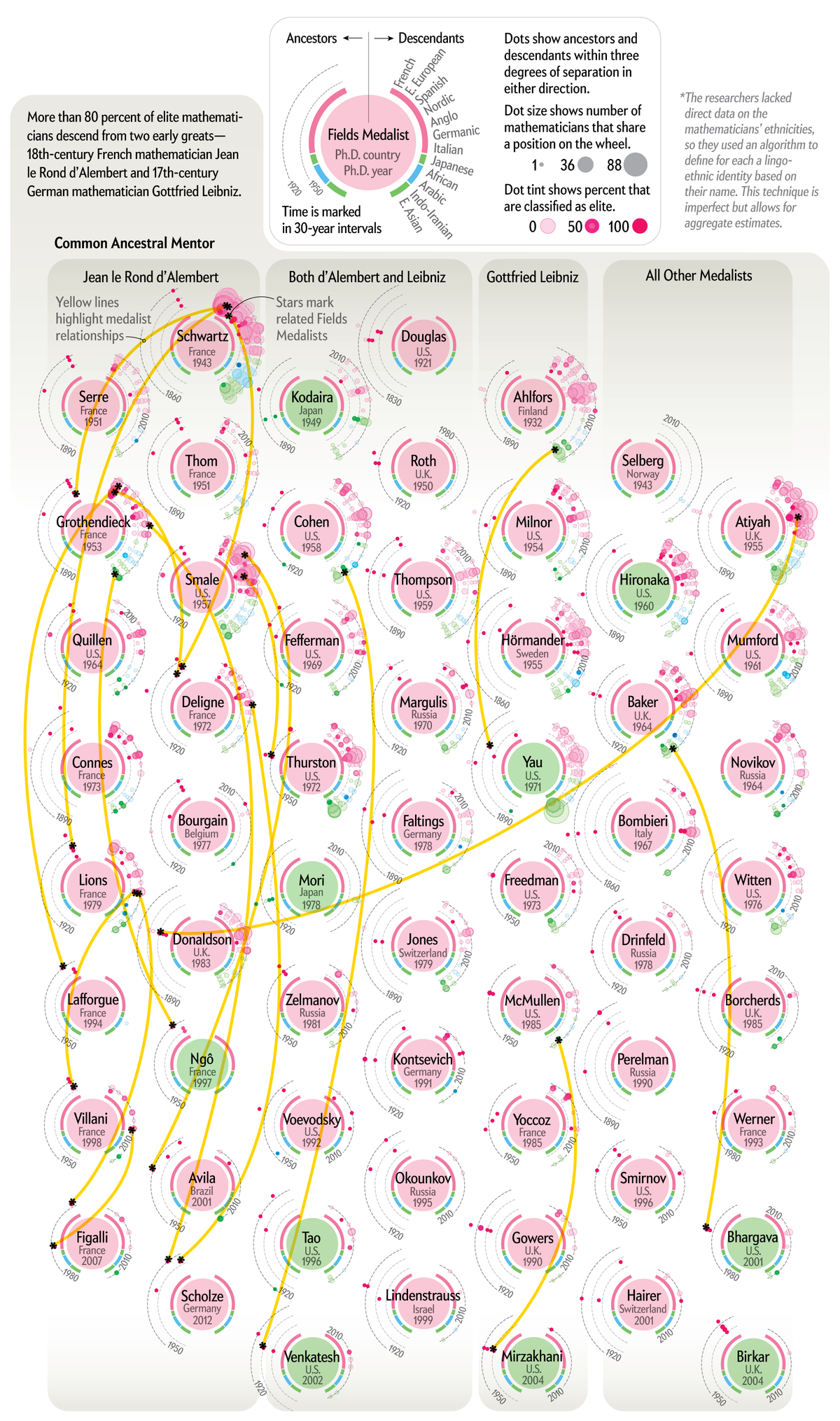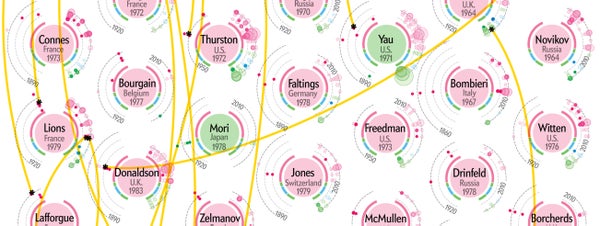On supporting science journalism
If you're enjoying this article, consider supporting our award-winning journalism by subscribing. By purchasing a subscription you are helping to ensure the future of impactful stories about the discoveries and ideas shaping our world today.
In mathematics, as in many fields, who you know matters. An analysis of mathematicians' “ancestors” (their graduate school advisers) as well as their descendants (the students they advised) shows that elite researchers tend to produce elites. Mathematicians Feng Fu of Dartmouth College and Ho-Chun Herbert Chang of the University of Southern California analyzed connections among 240,000 mathematicians and found that winners of math's highest honor, the Fields Medal, were concentrated among just a few mathematical families. “If you want to win a Fields Medal, you want to study with a Fields Medalist,” Fu says.
Fu and Chang also tracked mathematicians' ethnicities* and found that “elite” researchers—defined as Fields Medalists and those closely connected to them—are usually American or European, despite the fact that mathematicians around the globe have made significant discoveries. Moreover, elites tend to have advisers and advisees that are also more American and European than the general population of mathematicians. “This is urging elite institutions to think carefully about how they can help elevate underrepresented mathematicians,” Chang says.

Credit: Shirley Wu; Source: “Elitism in Mathematics and Inequality,” by Ho-Chun Herbert Chang and Feng Fu, in Humanities and Social Sciences Communications; January 2021 (data)
